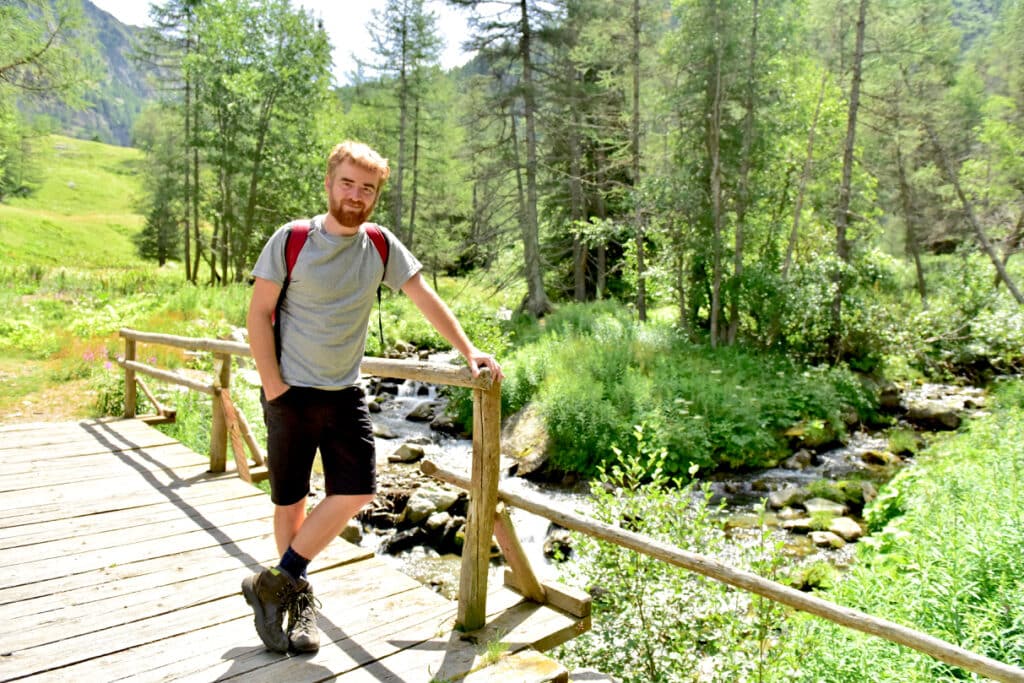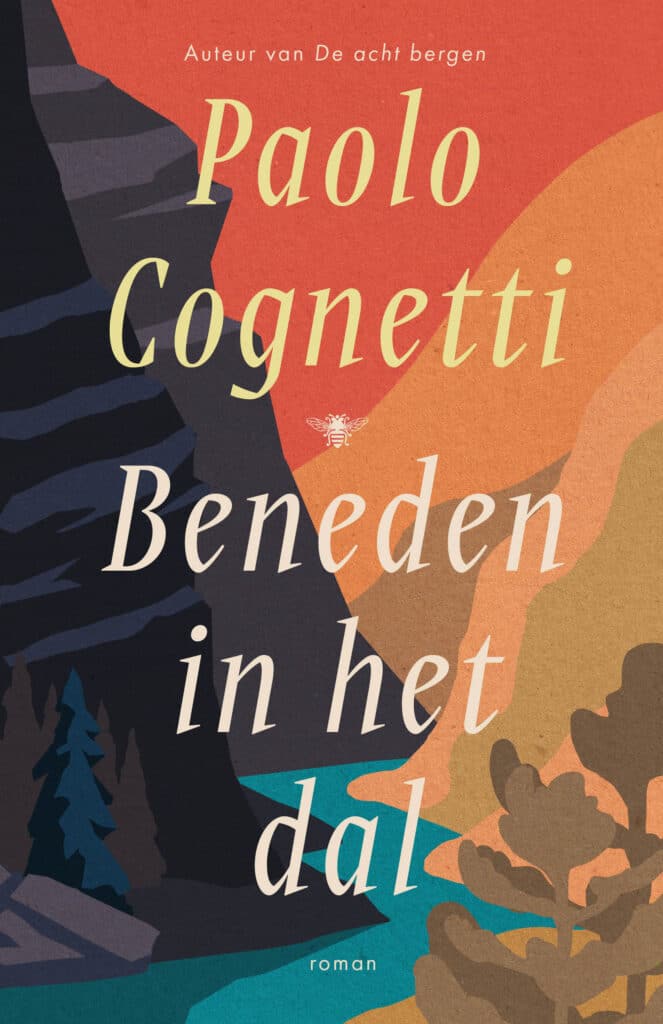Bergen, bomen, eenzelvige bewoners… Beneden in het dal is weer een ‘echte’ Paolo Cognetti.

Je zou hem de chroniqueur van de bergen en het bergleven kunnen noemen. Weinig schrijvers vertellen zo mooi over het leven op hoogte, midden in de natuur, ver van de drukdoenerij van de stad, als de Italiaanse auteur Paolo Cognetti. Met zijn verfilmde bestseller De acht bergen veroverde hij de harten van miljoenen lezers. De Noord-Italiaanse bergen vormen de vruchtbare bodem van Cognetti’s schrijverschap.
Meester in het kleine
Cognetti is geen auteur van het grootse gebaar; in zijn beschrijvingen, setting en zijn taal toont hij zich een meester in het kleine, in de subtiliteit. Zijn personages zijn veelal zwijgzame karakters, gehard door het ploeterende bestaan in een kleine berggemeenschap. Ze zijn een beetje ruw, maar hebben vaak ook iets vertederends.
Zo is dat ook in Beneden in het dal, een mozaïekroman die begint met een jong teefje dat op sleeptouw wordt genomen door een woeste grijze reu. Onderweg doodt hij diverse andere honden die hen willen aanvallen, en dat zorgt voor beroering in het dorp: is de seriemoordenaar een wolf, een mens of een wilde hond?
De lariks en de spar
De kern van het verhaal, verteld vanuit verschillende perspectieven, is echter een andere: twee broers die hun vader Grato hebben verloren door een zelfgekozen dood. Ooit plantte Grato naast zijn huis, hoog en afgelegen op de berg, twee bomen. Een lariks voor zijn oudste zoon Luigi; een boom die reikt naar de zon en wuift in de wind. En een spar voor zijn jongste, Alfredo; een boom van de schaduw, maar sterk. Alle drie hebben ze zo hun eigen schaduwkant: de mannen, die het hebben moeten stellen zonder vrouw/moeder, drinken bij tijd en wijle als ketters.
Na Grato’s dood staat het huis leeg, en Luigi wil er gaan wonen met zijn vrouw Elisabetta en hun kind in aantocht. Fredo leeft als houthakker in Canada, maar keert terug om met Luigi naar de notaris te gaan. Luigi, die als bosopzichter bezig is de ‘killer’ op te sporen, heeft echter verzwegen dat pal naast hun vaders huis een skipiste aangelegd gaat worden. Maakt dat het huis meer waard? De dag voor het notarisbezoek neemt alles een onverwachte wending.
Nebraska
In zijn nawoord schrijft hij dat hij werd geïnspireerd door de weemoedige plaat Nebraska van Bruce Springsteen, een plaat die er qua sfeer inderdaad prima bij past. Maar ondanks de aangestipte natuurverwoesting en andere wreedheden voelt de sfeer van de roman door de gekozen compositie toch iets minder zwaarmoedig dan in sommige van zijn eerdere romans.
Vertaald uit het Italiaans door Yond Boeke en Patty Krone
De Bezige Bij, € 22,99

